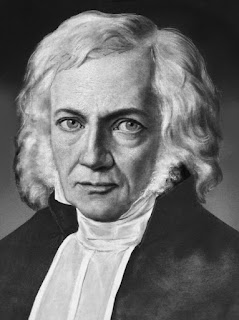Schleiermacher: The Christian Faith 157-172

The fifth and final discussion of Schleiermacher that focuses on his theology. The final two sections of the exposition by Schleiermacher offer to me the impression that he either lacks interest or is tired. I do not mind. If we look upon his work to this point, he has made some of the most creative breakthroughs that continue to inspire theologians today, even if they find themselves in disagreement. He shifted philosophical theology from it discussion of natural theology to the philosophy of religion. He also shifted philosophical theology from the various proofs for the existence of God to a consideration of philosophical anthropology. The significance of these efforts is that he has attempted to persuade us that humanity is intrinsically religious, which means that we depend upon openness to the experience of the Eternal for authentic living. He tries to show that Christianity is a particular mode of this experience of the Eternal. Theology has integrity as it accurately p...

